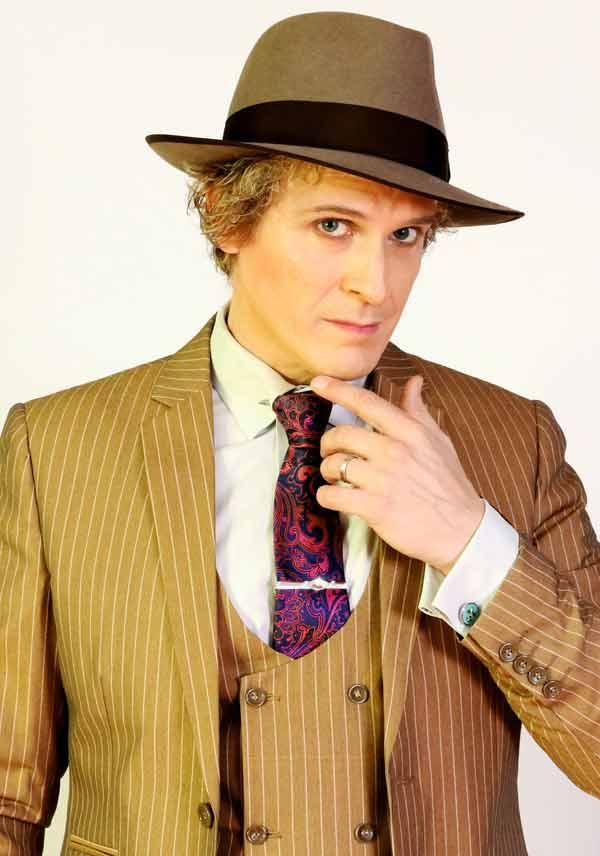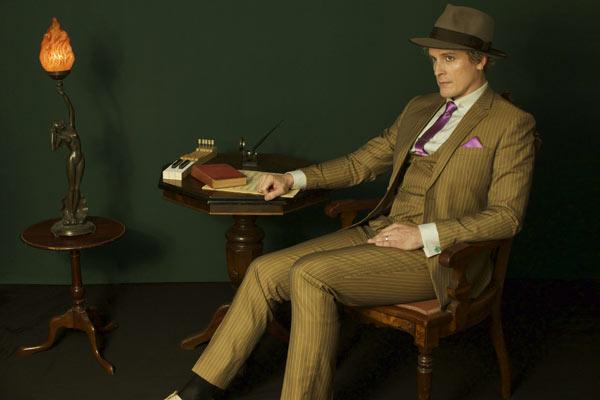Anton Koritni's Sydney Fringe show 'Poetry On Piano' does just what it says on the tin.
It's a performance filled with poetry transformed into songs and instrumental tone poems, composed by Anton in a seamless merging of classical, romantic, and rock & roll.
With extensive performance experience on television and stage, 'Poetry On Piano' marks Anton's debut in touring his own music.
Here, Anton answers questions about the show.
Tell us a bit about 'Poetry On Piano'.
‘Poetry On Piano’ is a body of work I have composed in which the western world's great poets have been both my muses and the providers of my source material. Works by Shakespeare, William Blake, John Keats, Percy Shelley, Arthur Rimbaud, Robert Frost, Dante Gabriel Rossetti and his sister Christina Rossetti have been incorporated into my show. My solo performance is much more than just a piano/vocal concert though. I have luscious electronic backing music that accompanies me as a live video feed of my hands is projected on to a big screen so the audience can see up close how the music is being created. As well as all this, I tell tales from the lives of the poets and offer an insight into my creative process.
You've drawn inspiration from the great poets of the western world for this show. How so?
There are two ways in which I celebrate history’s poetry in my show. Some verse is very lyrical and lends itself to a musical setting; in these cases I have set the text to music thus turning it into song. Other descriptive poetry is written in a metre that does not lend itself to song, such as the iambic pentameter found in Shakespeare’s sonnets. With these poems I have tried to capture the essence and heart of the poem and transform it into instrumental piano music. There’s actually quite a history of composers using this technique, Franz Liszt wrote a symphony based on Dante’s ‘Inferno’ and Richard Strauss wrote an orchestral tone poem based on Lord Byron’s ‘Don Juan’.
It merges a few different genres. Which is your favourite genre of music and why?
Oh no, that’s like asking who your favourite child is! I believe that every genre of music has something special to offer and I have been lucky enough to have worked in virtually every style of music there is. I have performed romantic music with the Sydney Symphony Orchestra, rock music with INXS and just about everything in between. But if there were only one style of music that I could play for the rest of my life, I would have to choose the romantic music written at the turn of the century. It is extremely emotional and driven by melody but has interesting harmonies that went on to influence American jazz.
You first appeared on television back in 1989! Do you think that helped to inspire you to continue in the entertainment industry?
Oh, most definitely yes. I am from a musical family and was brought up singing, playing piano and guitar; but if I am to be honest, for much of my childhood I did not enjoy music, especially the endless practising involved. But when I made my first television appearance on Channel Nines ‘C’mon Kids’, that forever changed my outlook on music and performance. I was ten years old at the time and among my peer group, the cool kids played sports or rode skateboards when suddenly, overnight, playing piano and singing was considered cool. You could say I was ‘bitten by the bug’.
What's your favourite music-related memory growing up?
My father was a post-war immigrant from Russia who arrived in Australia as a child with his parents, his sister and a handful of worldly possessions. Among these items was a 19th century mandolin, which was handed down to me, along with a dozen Russian folk tunes passed down through generations. One of my fondest memories is of playing the music of my ancestors on my family’s antique mandolin, accompanied by my father’s acoustic guitar playing. On reflection, it wasn’t just the wonderful music that struck a chord with me, but rather, the process of learning my musical heritage which was peppered with tales of my father’s own childhood instruction from a grandfather that I never had the chance to meet.
Why do you think your show belongs at Sydney Fringe?
What I love most about Sydney Fringe Festival is how every facet of Sydney’s creative community is afforded the opportunity to present their show to an open and appreciative audience. This year there are productions of circus, theatre, dance, spoken word, classical, experimental, and many others. I am proud to be presenting a more cerebral side of Sydney’s creative musical scene, which most certainly deserves a place among the pantheon of Sydney’s entertainers.

What do you hope to have achieved once the show is over?
Poetry is an art form whose appreciation is diminishing across all stratas of society. Poetry is no longer a core subject when studying English in high school, and in the wider world, it has been banished to the fringes of society. But poetry is a big part of everyone’s lives without them even realising it. The lyrics to every song that makes your blood rush or makes you shed a tear for lost love started out as a poem. The two biggest selling books in the English language are works of poetry, The Bible and Shakespeare’s collected works. With my show, 'Poetry On Piano', I’m hoping to shed some well-deserved light upon poetry, which is an integral part of the western culture we all love so dearly.
And how would you like audiences to react in an ideal world?
Ideally, I want to sew a seed of poetry into the soul of every audience member. Words can be weapons of war or instruments of love. Words are the blocks that build our pillars of understanding. In every word there is beauty, in some handfuls of words there is magic, a magic that each and every one of us deserves to rediscover. In my show I attempt to reconnect people with the power of poetry that throbs within us all.
'Poetry On Piano' plays Seymour Centre 27 September.

